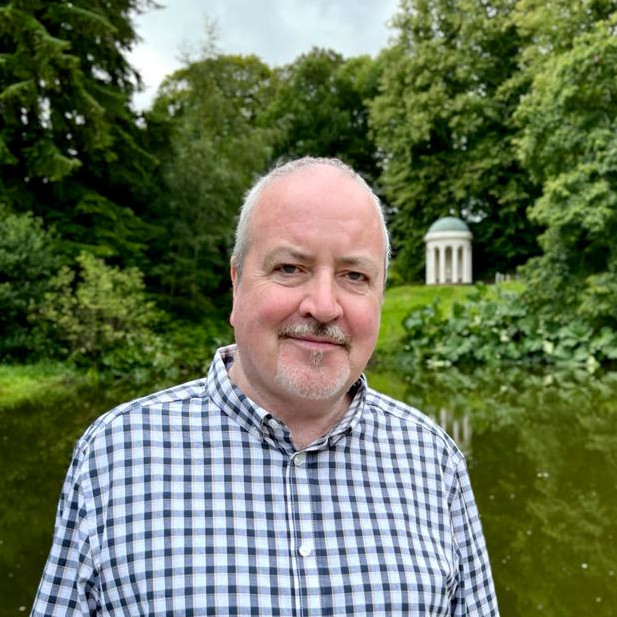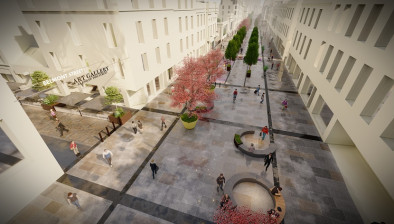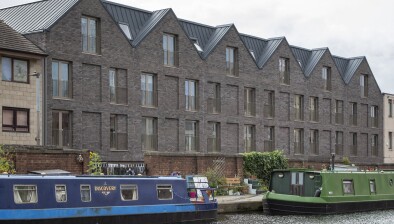Construction Leader: Chris Dougray on regeneration, risk and the role of optimism
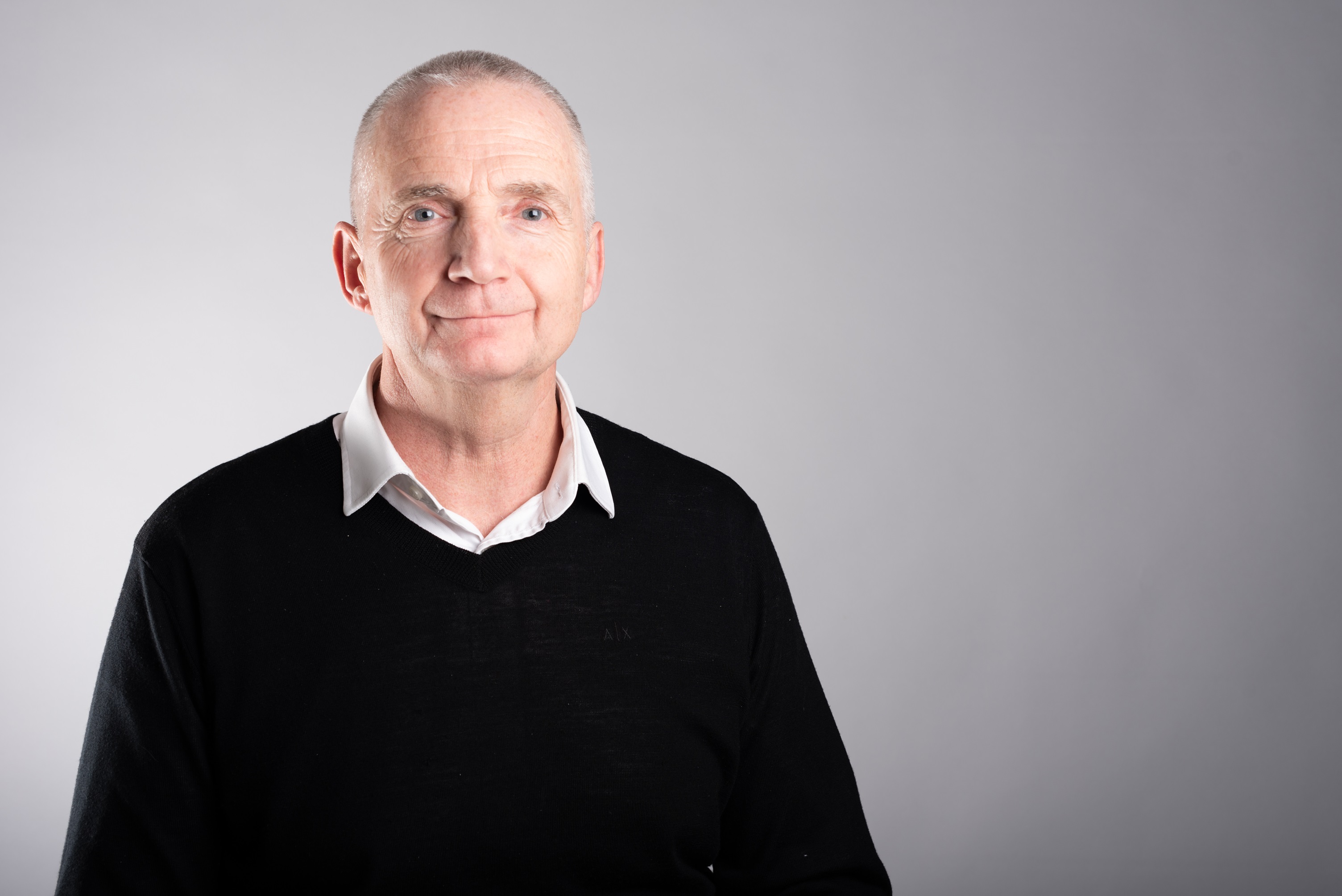
Chris Dougray
From rising construction costs to global geopolitical risks, Scotland’s real estate market faces no shortage of challenges. But for Chris Dougray, head of development at CBRE Scotland, adversity also brings opportunity.
Chris Dougray is both generous with his time and eclectic in his interests. The affable head of development at CBRE Scotland is primarily concerned with advising clients on development projects across various sectors, working closely with capital and end users and frequently introducing both into projects.
His passions, however, also embrace the world of contemporary art, ranging from the work of the California-based painter, sculptor and furniture maker Joey Vaiasuso (who he met in San Diego last year) to his current favourite, the Belfast conceptual artist Derek Wilson who focuses on using his skill as a potter to produce abstract sculptural forms.
Dougray’s continuing sense of curiosity is clearly advantageous in a commercial real estate market that is grappling with several interconnected challenges that reflect broader economic uncertainties, policy constraints and sector-specific pressures such as industrial sector supply constraints and, in retail, vacancies and declining footfall in once successful high-street locations.
Regeneration is a recurring theme when talking to Dougray. Six months ago, CBRE in Scotland, part of the world’s largest commercial real estate services and investment group, launched a dedicated planning team which it appointed in response to growth opportunities in the country and with the aim of significantly expanding its planning and development expertise to support its broader service offerings.
Led by Colin Smith and Kate Donald as senior directors, the team is working to reinforce CBRE’s ability to deliver high-profile regeneration projects across the country. On its launch, Dougray said: “Planning is the key to driving transformational regeneration, and it’s no secret that the landscape in Scotland is both dynamic and complex. While we cannot ignore the significant immediate challenges, this comes with great opportunity.”
He now adds that he believes the initiative is testament to CBRE’s belief in the Scottish marketplace and our optimism in the future. “We’ve built a team of six, and I don’t know that there’s another firm in Scotland recruiting just now. We’re also recruiting in other areas, and we’re fortunate that we can take advantage of CBRE’s international platform, which is increasingly relevant in today’s market.”
Dougray joined CBRE in 2022 when Dougray Smith, a Scottish property advisory consultancy which had specialised in investment and mixed-use developments, was acquired by the larger group.
His business partner David Smith also joined CBRE as executive director and head of the Glasgow office and the firm had advised on several high-profile transactions, including the sale of the Haymarket site in Edinburgh and the disposal of the 3.6-acre Candleriggs site in Glasgow, regarded by many as the last and most significant piece of the Merchant City regeneration jigsaw.
This is now home to The Social Hub, a mixed-use development comprising a hotel, student accommodation and shared workspace which he describes as “a brilliant” venue and one that is key to attracting people back to the city centre.
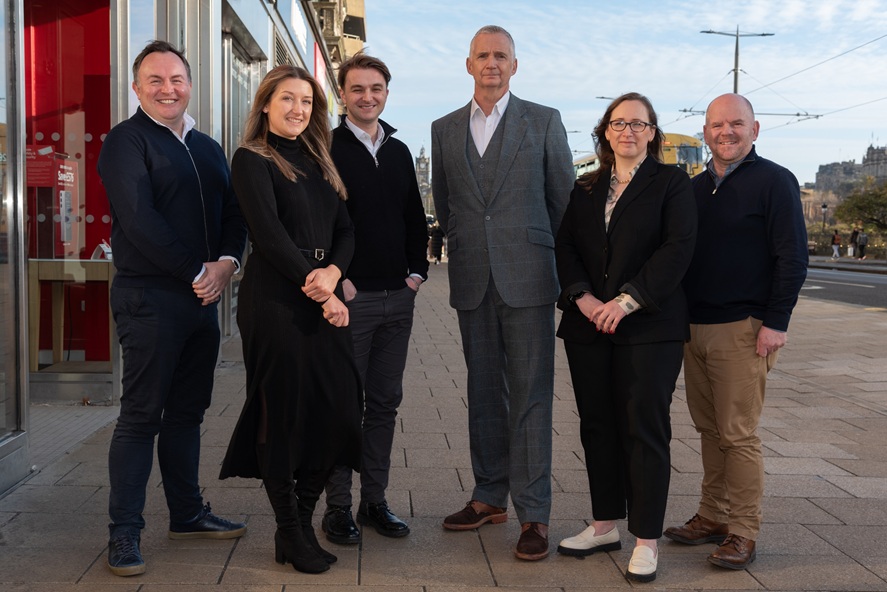
(from left) Iain Jenkinson (executive director), Hannah Munro (senior planner), James Wall (senior planner), Chris Dougray (head of development), Kate Donald (senior director), Colin Smith (senior director)
What keeps Dougray busy, he says, is advising clients, mostly in the development sector, including hotels and the build to rent sector, with those clients coming from a variety of geographies. “Some are Scottish, some are UK-based – but quite often the source of the money is international. And often the end users of the space, especially in the hotel sector, are international.”
For example, he says he advised Ruby Hotels on its pre-let deal for a new £100 million site in Edinburgh’s Princes Street and which is planned to open in 2028 with some 350 rooms across seven floors. The company, Dougray points out is based in Munich.
He is also selling two sites in Edinburgh to another hotel end user as well as a large logistics manufacturing site. Taking a step back from this high-end activity, he believes the single biggest issue in Scotland is building houses, particularly for less affluent residents.
“When people talk about the housing crisis, it’s not a crisis for middle-class and upper-middle-class people, who will survive. We are struggling, though, to put roofs over the heads of our most economically disadvantaged people.
“There’s only one way we are going to introduce new housing at scale – and I’m not talking about 12 apartments in the west end of Glasgow but thousands of homes that residents can afford – and that is public intervention,” he stresses.
“There must be this intervention, and CBRE is currently working on a proposed new funding model with the UK central government to deliver new housing at scale. We are hopeful of a positive outcome.”
When it comes to construction costs, he says Scotland has additional hurdles to overcome. “It’s some 15 per cent more expensive to build here than in the regions of England,” he says.
“That’s a massive challenge, and Scottish values are often lower than in other cities. Scotland needs to be present at events such as MIPIM and UKREiiF, presenting a positive and united front to compete on a UK, European and global basis. We need to make Scotland as appealing an investment location as possible – it’s that simple.”
On the macro-economic level, he adds, the market is currently ‘risk off’ and says: “Unsurprisingly, with factors such as Ukraine, Trump and the Middle East, there’s real geopolitical uncertainty.”
While cautious regarding the current climate, Dougray is – refreshingly – looking for reasons to be optimistic. Having recently attended a hotel conference in Berlin, he describes the experience as uplifting.
“Every hotel operator there definitely wanted to come to Edinburgh and would consider Glasgow. That was great to hear – and I came away feeling encouraged about the prospects.”
This spirit of positivity is clearly infectious. Having lived in Edinburgh with his wife Elodie, who is French, since 1988, both his children now work in the real estate sector – his son in Montreal and his daughter in Manchester.
“I always tend to be optimistic but there are challenges ahead,” Dougray acknowledges. “However, given how many people share my view on the urgent need to address the housing crisis, I’m confident that we’ll find a solution – one that will ultimately pave the way for large-scale development. That’s my upbeat ending for now.”







